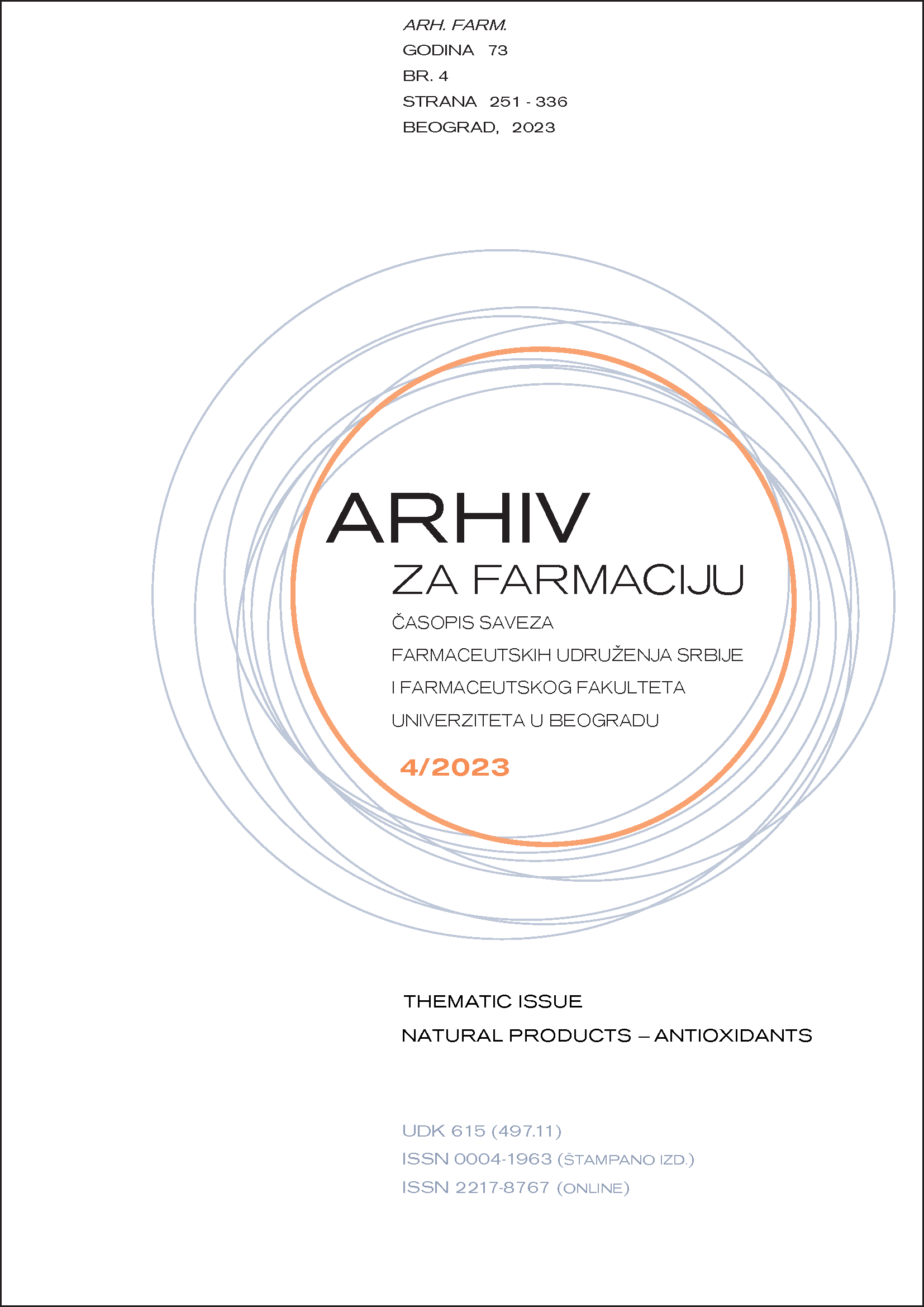
A Word from the Guest Editors
Maintaining cellular redox homeostasis is one of the main physiological mechanisms. Oxidative stress, due to increased production of free radicals (reactive metabolites of oxygen and nitrogen) endogenously or due to a higher intake of various xenobiotics, which exceeds the body's antioxidant protection capacity, is associated with various diseases. The endogenous antioxidant system includes enzymes (superoxide dismutase, glutathione peroxidase, catalase, etc.) and non-enzymatic antioxidants (ferritin, metallothioneins, glutathione, sulfhydryl groups of proteins, reducing blood components), and significant support is provided by exogenous antioxidants (vitamins, minerals, secondary plant metabolites, etc.). In addition to phenolic compounds (tannins, flavonoids, anthocyanins, and phenolic acids), other plant compounds, such as, e.g., carotenoids, tocopherols, and ascorbic acid, also exert antioxidant activity. Apart from antioxidative, plant metabolites exhibit anti-inflammatory, anti-carcinogenic, and other health-protective properties. Moreover, certain nutrients indirectly support the endogenous antioxidant system, such as cofactors of antioxidant enzymes, precursors of the synthesis of endogenous antioxidants, and modulators of redox-dependent signaling pathways. Epidemiological studies indicate an inverse relationship between dietary intake of vitamins C and E, carotenoids, and flavonoids and the risk of cardiovascular, malignant, and other chronic diseases and total mortality. Therefore, pharmacists should advise patients on the importance of a well-balanced diet and optimal dietary antioxidant intake to improve health and prevent disease. They must also provide evidence-based information on the proper use of herbal medicines, extracts, and essential oils, and the rational and safe use of dietary supplements for healthy individuals and patients. In addition to the methods for the evaluation of antioxidant activity of herbal preparations and foods, it is significant for them to have knowledge of the relevant methods for assessing the redox status, as well as relevant biomarkers, in order to individualize the approach in providing advice on the types and application of antioxidant products, dosing regimen, and monitoring their effects.
These topics were considered by a course for continual education for pharmacists and medicinal biochemists entitled "Natural products – antioxidants; when and how to use them". Later, the idea arose that these topics could be interesting for the thematic issue of Archives of Pharmacy. By accepting this invitation, we sincerely hope that new knowledge and a new approach to protection against damage caused by oxidative stress will be of interest to pharmacists, other health professionals, and the wider academic public.
Guest Editors
Nada Kovačević, PhD, Full Professor
University of Belgrade – Faculty of Pharmacy
Department of Pharmacognosy
Bojana Vidović, PhD, Associate Professor
University of Belgrade – Faculty of Pharmacy
Department of Bromatology
